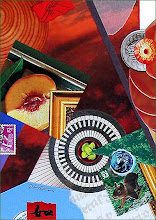Sunday, June 04, 2006
les livres.....
ok, so....in searching for a book to read.....i surveyed the downstairs bedroom collection.....offlimits under most circumstances, but the owner is unavailable for the next 8 weeks and i need something to read......and the only book i was vaguely interested in picking up was maigret a new york, by georges simenon...en francais....a book that i bought for him, mostly because i found it interesting rather than because he was keen to read my favorite detective novels in the language in which the series had been published...i cannot read french, yet there was a dictionary on the shelf near the book in question....surely a sign? right?.......the dictionary is circa 1962....which means it is so undesirable a reference volume as to still be on the shelf.......but i am making do....with a bit of help from babelfish......some terms are still not clear....such as s'etaient........babelfish explains it by repeating the term..as if it is self-explanatory....zut alors......so far i am on page 2....an maigret, the detective, is arriving on a ship at the port of new york...it is his first sea voyage, and he is either drunk or seasick or both.....as he has guzzled a bottle (or part of a bottle) of marc his wife sent along in his luggage....and he was smoking his pipe on the deck in his pajamas underneath his overcoat when he almost runs into a colleague named jean.......and it is in the middle of the night....and it is either raining or drizzling.......i say so far so good.........
Subscribe to:
Post Comments (Atom)

2 comments:
ok, so it isn't a colleague...it is a 19 year-old that maigret has accompanied to new york....no idea why as yet....i am on page 3...i am so proud......
The word étaient is third person plural imperfect: they were being (most of the time more accurately translated as "they were").
The s in front means it's reflexive. My best guess is that it was part of a longer verb phrase, since the verb to be is not usually reflexive. Maybe it was followed by a past participle, such as in the sentence Ils s'étaient lavés--they were washing themselves (literally: they themselves were being washed). That's just an example, since I doubt that particular sentence appeared in your novel.
Anyway, the presence of an s (or "se" in its long form, as well as me/te/nous/vous) before a verb indicates reflexivity--the verb's subject is also its object. We don't have anything like that in English, so it can be translated a number of different ways, sometimes just ignored.
Bonne chance et bonne continuation!
Post a Comment